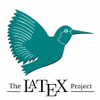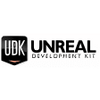Have a much easier time creating important technical documents with this free Windows 10 program
Have a much easier time creating important technical documents with this free Windows 10 program
Vote: (1 votes)
Program license: Free
Version: 1.1.1.3
Works under: Windows
Vote:
Program license
(1 votes)
Free
Version
1.1.1.3
Works under:
Windows
Pros
- Highly precise formatting ideal for technical and scientific documents
- Facilitates focus on content rather than appearance
- Support for a wide range of document types, including complex mathematical expressions
- Available for multiple operating systems, with both local and online options
- Extensive community support and comprehensive documentation
Cons
- Steeper learning curve compared to regular word processors
- May require manual updates for the latest features
- Markup language approach can be intimidating for beginners
A Premier Tool for Technical and Scientific Documentation
LaTeX Project steps into a niche where general-purpose word processors often fall short. It offers a powerful typesetting system designed for the creation of technical and scientific documents, where precise control over the document layout, complex mathematical expressions, and comprehensive formatting are paramount. LaTeX isn't your typical word processor—it's a specialized tool that shifts the focus from formatting to content, enabling authors to dedicate their efforts to the substance of their work.
Specialized Document Creation
LaTeX is adept at handling documents that require intricate typesetting, such as academic papers, theses, and books, particularly those laden with mathematical equations, algorithms, or other specialized content. Unlike traditional text editors, LaTeX employs a markup language, allowing detailed instructions for typesetting and rendering documents according to highly specific needs. This level of precision is vital in professional and academic environments, where document consistency and adherence to publishing standards are often non-negotiable.
LaTeX Ecosystem and Distributions
This typesetting system is not an island unto itself; rather, it operates on top of the TeX typesetting system, developed by Donald E. Knuth. It's a testament to the robustness and enduring relevance of TeX which has been refined over decades to support modern typesetting requirements. LaTeX distributions typically encompass various components essential for a functional TeX environment, along with helpful maintenance utilities and configuration options. While Linux, Windows, and Mac OS users can download software to run locally on their machines, there is also the flexibility of online options for those who prefer to work in the cloud.
Note, however, that the LaTeX Project team does not ensure that every distribution contains the most recent version of the tool. Tech-savvy users with particular needs may have to manually update their LaTeX version via the Comprehensive TeX Archive Network (CTAN). This might pose a challenge for those who require the cutting-edge features of the tool and are not as familiar with manual installations.
Performance and User Experience
For those new to LaTeX, there is a learning curve associated with its markup language. Users accustomed to the WYSIWYG (What You See Is What You Get) interface of common word processors may need time to adapt to the script-based approach that LaTeX demands. However, numerous online communities and extensive documentation provide substantial support for beginners and experts alike.
Once mastered, LaTeX is renowned for its stability and reliability. It consistently produces professional-grade documents with a level of precision that is difficult to achieve with other word processors. High performance is maintained even with large, complex files, making it a preferred tool among researchers, mathematicians, and scientists.
Final Thoughts
LaTeX Project is as much about a community as it is about software. It stands as a testament to the collaborative efforts of countless individuals who have contributed to its development and maintenance. For creating documents that are not merely read but studied and scrutinized, LaTeX offers an unrivaled set of tools. It encapsulates the principle that authors should focus on content, letting the system take care of the aesthetics according to predefined standards of precision and quality.
Pros
- Highly precise formatting ideal for technical and scientific documents
- Facilitates focus on content rather than appearance
- Support for a wide range of document types, including complex mathematical expressions
- Available for multiple operating systems, with both local and online options
- Extensive community support and comprehensive documentation
Cons
- Steeper learning curve compared to regular word processors
- May require manual updates for the latest features
- Markup language approach can be intimidating for beginners




